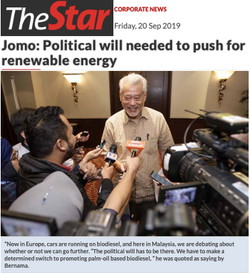- Mar 17, 2025
- 1 min read
What does the 1997 East Asian Financial Crisis tell us about capitalism and crisis more generally? Should we include it alongside the 1930s, 1970s and 2008 as a major crisis in the history of capitalism? Or does it simply an early symptom of the conditions that eventually gave rise to 2008?
Jomo Kwame Sundaram is a Malaysian economist holding such positions including Visiting Senior Fellow at Khazanah Research Institute, Visiting Fellow at the Initiative for Policy Dialogue, Columbia University, and Adjunct Professor at the International Islamic University in Malaysia. He joins Chris Saltmarsh and Dillon Wamsley to discuss the 1997 Asian Financial Crisis including the role of the IMF in causing it; its experience in Thailand, Malaysia and South Korea respectively; and how we should understand it in relation to the 2008 financial crisis.
Crisis Point is a limited series introducing the political economy of capitalist crises, providing historical and theoretical rigour to discourses around crisis in the present.
Recommended reading for this episode:
1) Jomo Kwame Sundaram (ed.) Tigers in Trouble: Financial Governance, Liberalisation and Crises in Southeast Asia (Hong Kong University Press, 1998)
2) George W. Noble & John Ravenhill (eds.), The Asian Financial Crisis and the Architecture of Global Finance (Cambridge University Press, 2012)
3) Frank Veneroso & Robert Wade, The Asian Crisis: The High Debt Model Versus the Wall Street-Treasury-IMF Complex, New Left Review, I/228 (1998)
Works referenced in this episode: Robert Wade on East Asia, including the Republic of Korea
Also available on Spotify and Apple Music

















